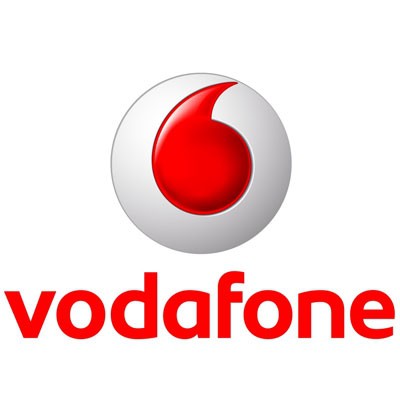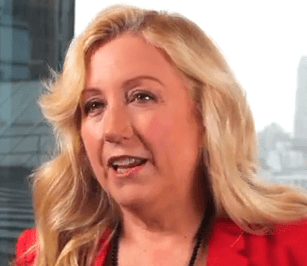 Time Warner Cable’s nationwide channel realignment, gradually rolling out across all Time Warner Cable systems, arrives in Albany and Rochester in New York and western Massachusetts next month. It is the cable company’s biggest channel numbering change in over a decade.
Time Warner Cable’s nationwide channel realignment, gradually rolling out across all Time Warner Cable systems, arrives in Albany and Rochester in New York and western Massachusetts next month. It is the cable company’s biggest channel numbering change in over a decade.
Time Warner is realigning almost every channel numbered over 100 into new theme-based categories to help customers find programming more easily. When the changes are complete, customers across the country will find most of the same networks on the same channel numbers regardless of where they live. Channels numbered 1-99 are not changing.
The new national unified lineup could mean more channels for some. For example, customers in Rochester will begin to receive several time-shifted west coast feeds of premium movie channels, the addition of Chinese Central State Television’s English language news network, Esquire TV, QVC Plus, Women’s Entertainment SD/HD (We), and the reintroduction of the Game Show Network. ESPN 3D is being dropped.
 The channel changes are causing some controversy in Albany because Time Warner is moving adult networks including Hustler TV, Penthouse On Demand, Manhandle, and Outrageous TV to channel positions that will soon be vacated by Albany’s local broadcast stations.
The channel changes are causing some controversy in Albany because Time Warner is moving adult networks including Hustler TV, Penthouse On Demand, Manhandle, and Outrageous TV to channel positions that will soon be vacated by Albany’s local broadcast stations.
The changes take effect:
- Oct. 8: Albany, Amsterdam, Canajoharie, Cobleskill, Gloversville, Kinderhook, Rensselaer, and Schenectady, N.Y.
- Oct. 10: Battenkill, Clifton Park, Crown Point, Glens Falls, Hague, Hoosick, Port Henry, Putnam, Queensbury, Saratoga Springs, Schroon Lake, Ticonderoga, and Troy, N.Y.
- Oct. 10: Great Barrington, Lee, Lenox, North Adams, Pittsfield, Sheffield, and Stockbridge, Mass.
- Oct. 15: Rochester and its nearby suburbs across most of Monroe County, N.Y.
- Oct. 17: Cayuga, Erie (East), Genesee, Livingston, Niagara, Ontario, Orleans, Schuyler, Seneca, Steuben, Wayne, Wyoming and Yates Counties, N.Y.
[flv width=”640″ height=”380″]http://www.phillipdampier.com/video/TWC Navigating Your Channel Lineup 9-13.flv[/flv]
Time Warner Cable introduces customers to their new unified nationwide television lineup, coming soon to your Time Warner Cable system. (2 minutes)
The new genre categories and their channel numbers:
| Genre | Starting at | Genre |
Starting at | |
| Entertainment | Ch. 100 | Movie Channels | Ch. 600 | |
| Life & Style | Ch. 160 | Pay-Per-View + 3D | Ch. 650 | |
| News & Info | Ch. 200 | Sports Packages | Ch. 700 | |
| Kids & Teens | Ch. 250 | Latino | Ch. 800 | |
| Music | Ch. 285 | On Demand | Ch. 1000 | |
| Sports | Ch. 300 | Local Programming | Ch. 1200 | |
| Inspiration | Ch. 460 | International | Ch. 1400 | |
| Shopping | Ch. 480 | Adult | Ch. 1800 | |
| Movies On Demand | Ch. 500 | Radio | Ch. 1900 | |
| Premiums | Ch. 510 | TWC Info | Ch. 1998 | |
The new lineup no longer includes separate HD and SD channels of each network. Instead, Time Warner’s HD set-top boxes will be programmed to show the best signal available, usually HD. SD converters, meanwhile, will show only SD channels.
Time Warner Cable premiered its new lineup in Syracuse and surrounding areas in central New York back in June. The company will continue to gradually roll out the channel changes in other cities this fall and winter.
[flv width=”640″ height=”380″]http://www.phillipdampier.com/video/WRGB Albany TWC Changing Channels 9-5-13.flv[/flv]
WRGB in Albany reports some Time Warner customers looking for their local television stations after the channel realignment will instead end up on the cable company’s adult entertainment tier, invited to subscribe with the push of a few buttons on the remote control. (2 minutes)


 Subscribe
Subscribe The Berlin Wall was still there in 1987, but thanks to AT&T and the Drug Enforcement Administration, your privacy was gone.
The Berlin Wall was still there in 1987, but thanks to AT&T and the Drug Enforcement Administration, your privacy was gone. The scope of the program goes beyond the data collected by the National Security Agency, according to the Times. AT&T’s data is more comprehensive than that collected by the NSA, and involves any telephone call that passes through an AT&T switch, not just those made by AT&T customers.
The scope of the program goes beyond the data collected by the National Security Agency, according to the Times. AT&T’s data is more comprehensive than that collected by the NSA, and involves any telephone call that passes through an AT&T switch, not just those made by AT&T customers. Executives at Canada’s largest telecom companies are sighing relief after Verizon announced it was not interested in competing in Canada.
Executives at Canada’s largest telecom companies are sighing relief after Verizon announced it was not interested in competing in Canada.


 Verizon hopes being the master of its own destiny will allow the company to innovate its wireless network towards future revenue opportunities, especially in the machine to machine connectivity business. Both AT&T and Verizon Wireless are racing to enable medical devices, home appliances, electric meters, and automobiles to communicate over their respective wireless networks. Both companies are concerned that the cell phone marketplace has become saturated in the United States, with most people desiring cell phone service already having it. With Wall Street demanding ongoing growth quarter after quarter, new revenue sources are more important than ever.
Verizon hopes being the master of its own destiny will allow the company to innovate its wireless network towards future revenue opportunities, especially in the machine to machine connectivity business. Both AT&T and Verizon Wireless are racing to enable medical devices, home appliances, electric meters, and automobiles to communicate over their respective wireless networks. Both companies are concerned that the cell phone marketplace has become saturated in the United States, with most people desiring cell phone service already having it. With Wall Street demanding ongoing growth quarter after quarter, new revenue sources are more important than ever.
 Although Time Warner Cable is crediting customers for the loss of Showtime/The Movie Channel, blocked by the cable operator while the impasse continues, Time Warner is not giving any automatic refunds for the loss of CBS basic or broadcast programming and networks taken off the cable dial. CBS-owned Smithsonian TV is the most affected basic cable channel nationwide. Some customers who pay extra for Smithsonian as part of an added-cost HD Tier often known as “TWCHD Pass” have gotten service credits upon request.
Although Time Warner Cable is crediting customers for the loss of Showtime/The Movie Channel, blocked by the cable operator while the impasse continues, Time Warner is not giving any automatic refunds for the loss of CBS basic or broadcast programming and networks taken off the cable dial. CBS-owned Smithsonian TV is the most affected basic cable channel nationwide. Some customers who pay extra for Smithsonian as part of an added-cost HD Tier often known as “TWCHD Pass” have gotten service credits upon request.